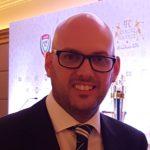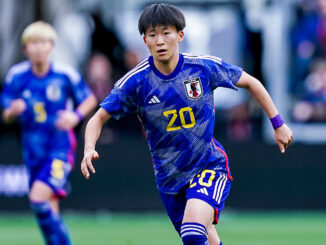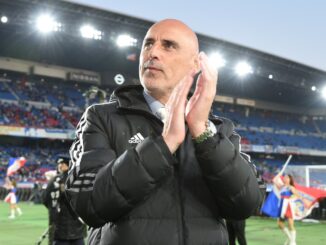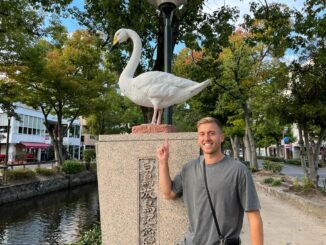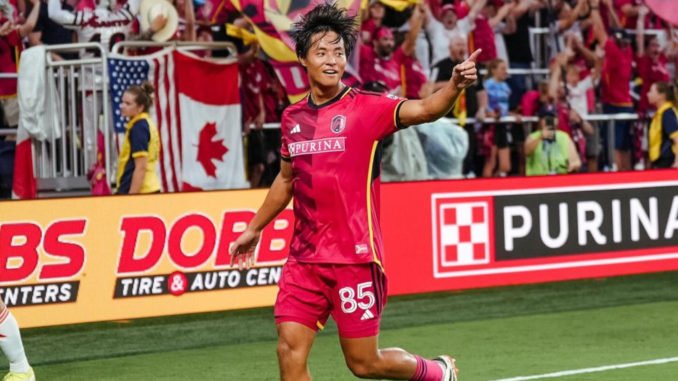
Earlier this year, in just his seventh league appearance, Hosei Kijima shared the pitch with Lionel Messi as his St Louis City outfit played out a thrilling 3-3 draw with Messi’s Inter Miami.
Messi, the eight-time Ballon d’Or winner, was on the scoresheet that day, as were his former Barcelona teammates, Luis Suarez and Jordi Alba.
Kijima, aged just 21, started on the bench but was called upon early when Rasmus Alm went off in the 27th minute with a knee injury that would keep him sidelined for three months.
Within 15 minutes, and before the break, he had an assist to his name as he laid the ball into the path of Indiana Vassilev to fire St Louis City into a 2-1 lead.
By the end, according to renowned website, Fotmob, he had a rating of 8.0, the second highest of any player for St Louis City that day.
For the Yokohama-born midfielder, it was a scenario he could barely have dreamed about growing up given, by his own frank admission, he ‘wasn’t good enough’ to even get on the radar of a J. League academy side.
And yet here he was sharing the pitch with arguably the greatest player of all time.
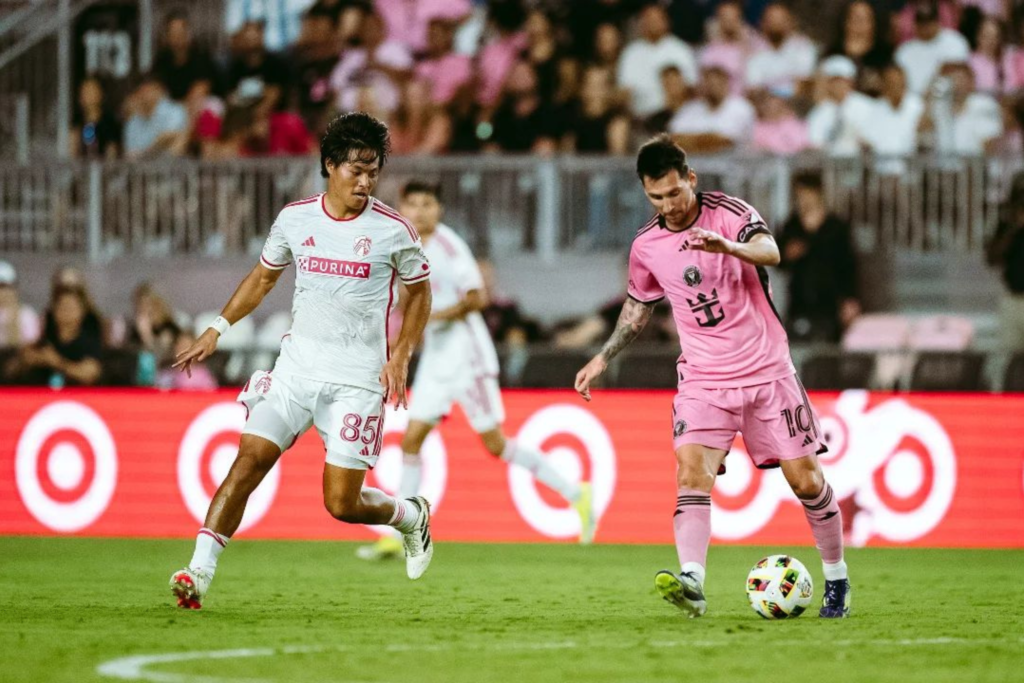
“I’ll put it simply, I wasn’t good enough to play in the J. League,” he said, reflecting on his decision to move to America to pursue his career.
“In terms of in an academy when I was little, I just wasn’t good enough. I just played for a local club near my house.”
While appreciative of how far he still has to go in the game, the end of the MLS season – which for Kijima saw him move to DC United in a deal with expansion side San Diego FC – gives him time to pause and reflect on the season that was and the journey to get there.
“I am proud of the league I’m in,” he told The Asian Game Podcast.
“I think I came at a very good time where it’s going to skyrocket soon. I mean, the MLS is very high level, it was a higher level than I expected, for sure, coming from college. It was a big gap, (a) big jump, I would say, from college into into the MLS.
“I learned a lot from everybody. They welcomed me with open arms, and they helped me to develop as a pro.
“I think me as a player, I need to be much more consistent than what I was this year. I had a lot of disappointing performances, I would say, that went through throughout the season. But I think that comes through experience and time playing in the MLS.
“I’m not worried, but overall, I think consistency has to improve for me as well. But I think I have longer, much longer ways to go, and I am nowhere being close to satisfied with my career.”
That he even has a career at all is not lost on him, given his own harsh self-assessment of his junior career.
With the regular development pathways in Japan seemingly closed off, on something of a whim, aged just 12, he and his parents decided to send him almost 12,000 kilometres away on the other side of the world, to the famed IMG Academy in Florida.
“Going to IMG when I was 12, was a semi-conscious decision,” he explained. “I was a crazy little kid that just wanted to go out and play. So I’m very thankful for my parents to let me do that.”
From there he went to College at Wake Forest University in North Carolina, a period he credits for so much of his development, as both a player and a person.
“I was very appreciative of [head coach] Bobby (Muuss) giving me opportunity. Probably my biggest development stage was at Wake Forest,” he said.
“I developed my tactical IQ, obviously, I have a long way to go, but my tactical IQ was there, positional intelligence, positional awareness. That’s where I matured as a footballer. Technique improved, vision improved, IQ improved, defending, attacking, all those little things that you require to be a professional player.”
So much had it improved that St Louis City took him with their first selection, Pick 17, in the 2024 MLS SuperDraft.
To get to that point, however, required days and years of hard work and sacrifice. That was evident in him moving to the other side of the world at age 12, but also in the things that fans don’t see.
It was there in the 3am alarm – yes, 3am – to get in extra training. That training wasn’t just physical, but also tactical.
To peruse Kijima’s social media feeds is akin to taking a crash course in football tactics, such is his interest in that side of the game. It’s what he loves, telling The Asian Game Podcast that a transition into coaching is the aim after his playing career, but it hasn’t always been that way.
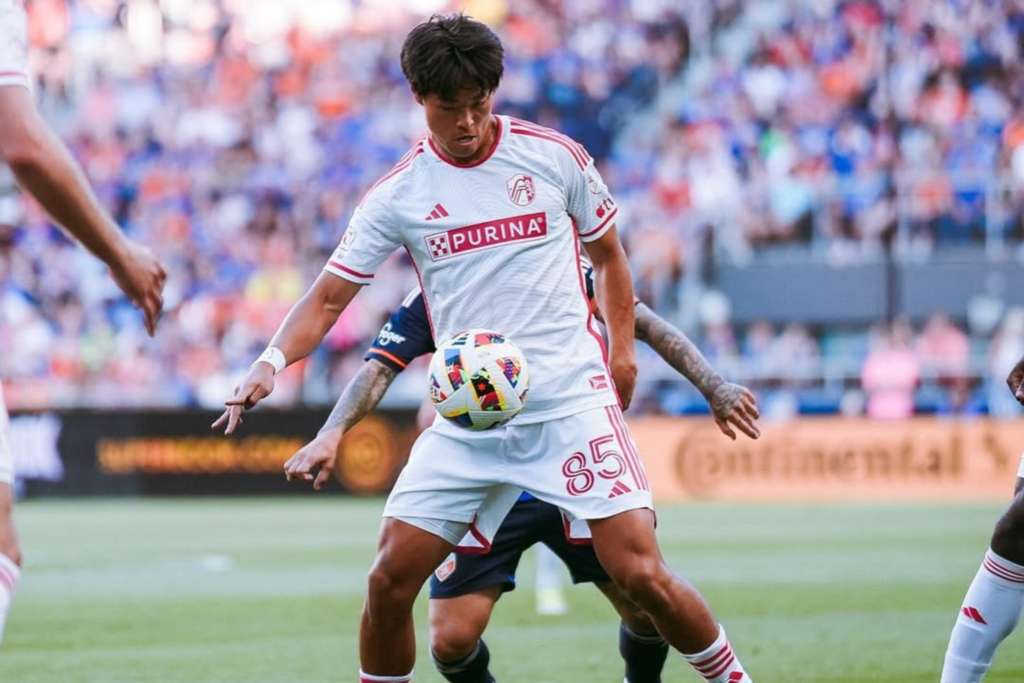
His coach at Wake Forest, Bobby Muuss, likened him to a raw onion that would have his layers revealed year by year; seeing a raw kid full of potential but one that needed to learn more about the game. So that’s what he did.
“I was like, ‘OK, I’ll show you.’” Kijima said in a previous interview with the
St Louis Post-Dispatch.
“Started maybe 3am, 3 to 7, I would watch three different games in three different perspectives, that’s how I increased my knowledge of the game. I read books, tactical books, autobiographies, read a lot of articles, Twitter feed.
“That’s all I look at. Instead of scrolling through Instagram, I scroll through tactics, highlights, things like that, all roots from the love of the game. Just a continuous growth of knowledge and adding to your library.”
He rattles off a list of coaches that he admires – Roberto de Zerbi, Ange Postecoglou, Pep Guardiola, Fernando Diniz, Fabian Hurzeler, Marcelo Bielsa – even referencing Spanish second division side, Racing Santander, and their style under manager Jose Alberto Lopez.
He even wrote a paper on de Zerbi’s tactics and how they could be applied to a Futsal team at Wake Forest University.
“I just was like, ‘let me just try to coach this team’. And then at the same time, Roberto de Zerbi, he was doing this new provocative football playing style in the Premier League. And it was, first of all, beautiful, but it was also courageous. Not many other coaches would try doing that.
So I was just like, et’s see how it works in futsal. One of the reasons why it was so brave to do it in futsal was that we were using the goalkeeper as a plus one, no matter where the ball was. So higher up the pitch, I was using the goalkeeper as a center back.
“And so it’s high risk, but high reward. Because if we lose the ball and they just chip it over our goalkeeper, we’re probably losing the game, and they’re going to just keep doing that. So (it required) a lot of training, a lot of different creative processes, simply because it hasn’t been done. But, it worked out, and we won the whole tournament.”
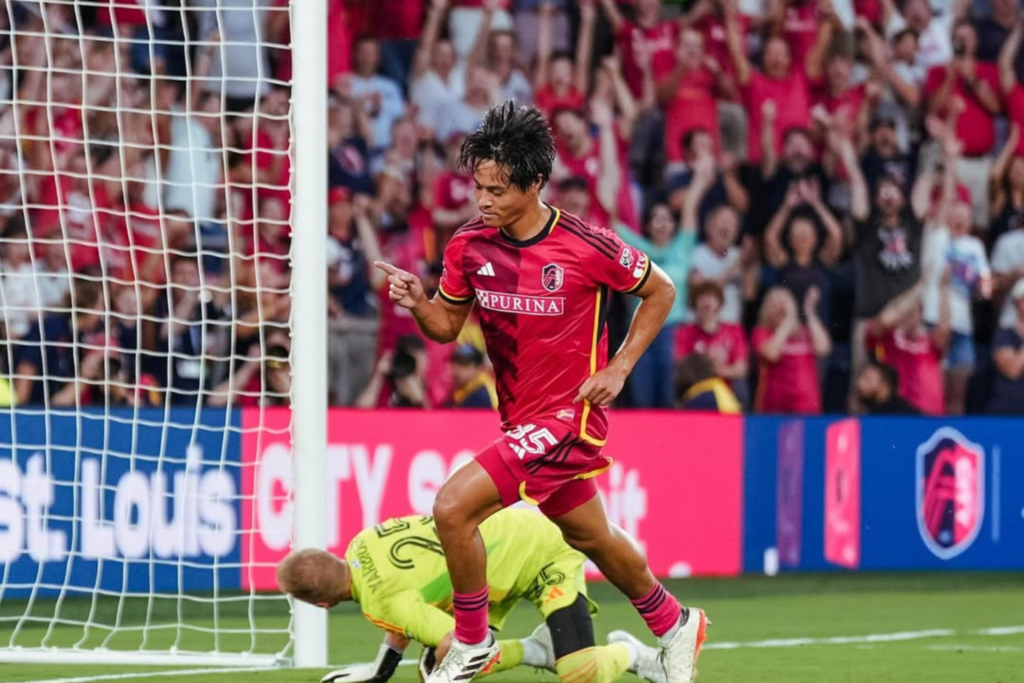
It’s an answer that gives a glimpse into his psyche; one that loves challenging societal norms and orthodoxy. He describes himself as ‘having an obsession with unorthodoxy’, which explains his fascination with characters like Postecoglou and Bielsa.
“So it just fascinates me, people who do new things,” he explains.
“It’s just different. People call people crazy (but) it’s those people I love, and I want to be that same person, (one that says) ‘call me crazy, but we’re gonna do this’, you know?
“So it’s a little bit of both, in terms of not only football, but ideologies or philosophies, being unorthodox and being non-conformist are two things that I really look for in a coach. So it’s fun to study those things.”
It’s clear from our conversation that study and his football consumption habits haven’t changed. When he spoke to The Asian Game Podcast, it was 9am in Yokohama, but that was not early, he claimed, as he was awake at 3am.
“It’s tough to switch off and unwind, I’m not gonna lie to you,” he said.
His former coach at St Louis City, Bradley Carnell, recently commented that he’d be in the coach’s room every day if they let him. It’s clear a career in coaching awaits once his playing days are done.
From a boy not good enough for the J. League, to playing with Messi and studying some of the world’s sharpest tactical minds. It’s been a journey already, but it’s one, you get the sense, that is only just getting started.
Listen to Episode 235 of The Asian Game Podcast as we talk Saudi 2034 and speak with Hosei Kijima

